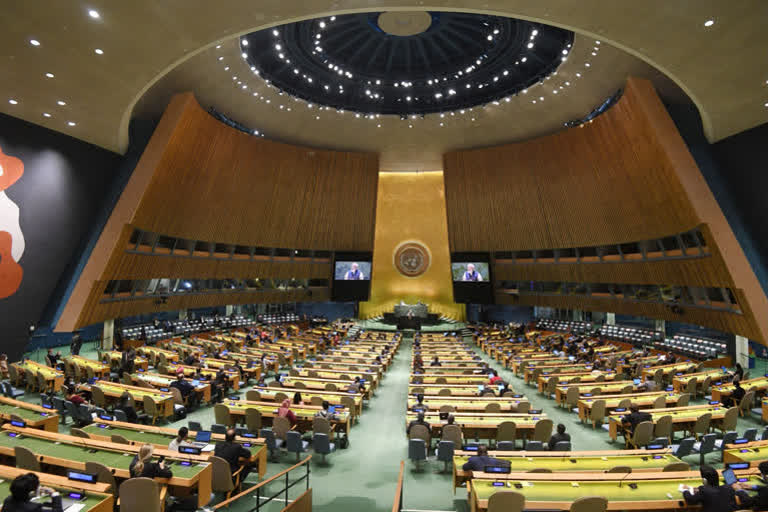United Nations: India has expressed deep concern over the proliferation of weapons of mass destruction and their delivery systems that could endanger peace and security, saying the possibility of terrorists acquiring such weapons necessitates the global community to work together to address this grave danger. Ambassador Pankaj Sharma, Permanent Representative of India to the Conference on Disarmament (CD), Geneva, said India has been drawing the attention of the world towards these threats and the need to strengthen international cooperation to address them through its annual consensus UNGA resolution titled Measures to prevent terrorists from acquiring weapons of mass destruction'.
We are deeply concerned about the proliferation of weapons of mass destruction and their delivery systems, which endangers international peace and security. The possibility of terrorists acquiring weapons of mass destruction necessitates Member States to work together to address this grave danger, he said at the General Debate of the First Committee of the 76th Session of the UN General Assembly on Monday. He asserted that weapons in the hands of terrorists are the most threatening form of illicit small arms and light weapons.
Therefore, India values the full and effective implementation of the UN PoA as a means to combat terrorism and transnational crime, Sharma said at the session of the First Committee, which deals with disarmament and international security issues. Under the Programme of Action to Prevent, Combat and Eradicate the Illicit Trade in Small Arms and Light Weapons in All Its Aspects (PoA), governments agreed to improve national small arms laws, import/export controls, and stockpile management and to engage in cooperation and assistance, the UN said.
In 2005, they also adopted the International Tracing Instrument (ITI), which requires States to ensure that weapons are properly marked and that records are kept. Moreover, It provides a framework for cooperation in weapons tracing fulfilling one of the commitments governments made in the Programme of Action. Improving weapons tracing is now part of the 2030 Agenda for Sustainable Development, the UN Office For Disarmament Affairs said. Sharma also said that India's annual resolutions at the UN General Assembly, namely the 'Convention on the Prohibition of the Use of Nuclear Weapons' and 'Reducing Nuclear Danger' that enjoy the support of the majority of the Member States have consistently highlighted the need for the CD to commence negotiations to reach agreement on an international convention prohibiting the use or threat of use of nuclear weapons and urgent steps to reduce the risks of unintentional and accidental use of nuclear weapons, respectively.
He told the session that India is firmly committed to the goal of universal, non-discriminatory and verifiable nuclear disarmament. India's proposal for a step-by-step approach for the total elimination of nuclear weapons, contained in its Working Paper submitted to the Conference on Disarmament in 2007, calls on the Conference on Disarmament to negotiate a Comprehensive Nuclear Weapons Convention. As the world's single multilateral disarmament negotiating forum, as mandated by the Special Session on Disarmament (SSOD)-1, the Conference on Disarmament needs the requisite political will to agree on a comprehensive and balanced programme of work and to commence negotiations on legally binding instruments on the core items on its agenda, Sharma said.
